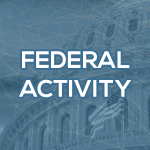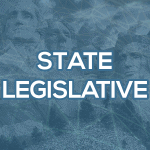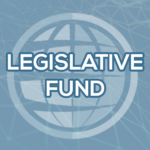The U.S. Senate Banking Committee has approved Jonathan McKernan’s nomination to be the next Director of the Consumer Financial Protection Bureau (CFPB) with a party-line vote of 13-11. A full Senate vote is expected this month. Meanwhile, several legislative efforts have been introduced in both the House and the Senate targeting the CFPB. These include bills to defund the agency and a House bill that proposes repealing the CFPB entirely.
Last week, Republican lawmakers in Congress introduced resolutions that would overturn the CFPB’s medical debt reporting rule. Senator Mike Rounds (R-SC) and Representative Ralph Norman (R-SC) introduced S.J. Res. 36 and H.J. Res. 74, respectively. RMAI, along with other industry organizations, submitted a letter to Congress expressing our support for the resolutions. The resolutions under the Congressional Review Act (CRA) enable Congress to review and overturn federal agency regulations through a joint resolution of disapproval, requiring the President’s signature to become effective.
Reports indicate that the CFPB was planning to terminate up to 95% of its staff before a judge intervened last month to block the action. The firings were expected to have affected large portions of the Bureau’s supervision and enforcement staff. Following the judge’s ruling preventing these layoffs, the CFPB has resumed some of its legally mandated work. The CFPB website’s “404 error” is now removed, but the website is highlighting consumer complaints on its homepage.
The Bureau has also extended the comment periods for two Advance Notices of Proposed Rulemaking (ANPRs) that were originally set to close in early March 2025. These deadlines have now been pushed to early April 2025. The ANPR on coerced debt seeks to broaden the definitions of “identity theft” and “identity theft report” under Regulation V to address coerced debt scenarios, such as those arising from domestic violence or elder abuse. Additionally, it aims to explore methods for identifying and addressing debts incurred through coercion, assess the responsibilities of entities furnishing credit information, and review the current dispute resolution process. RMAI will be submitting comments in response to this ANPR.
The CFPB is also seeking comments on a proposed rule related to data brokers. This proposal significantly expands the definitions of “consumer reports” and “consumer reporting agencies” while redefining “furnishing” in the context of consumer reports. For a comprehensive overview, members can refer to the December 5, 2024 RMAI Member Alert. RMAI will also be submitting comments on this proposal.
The Federal Communications Commission (FCC) has recently adopted an order enhancing its rules to combat robocalls. The order extends the requirement to block voice traffic based on a reasonable Do-Not-Originate (DNO) list to all providers involved in the call path. Additionally, it revises existing regulations to require terminating voice service providers to immediately notify callers of blocked voice traffic using Session Initiation Protocol (SIP) code 603+. These measures aim to improve transparency and efficiency in blocking illegal robocalls.
Members are encouraged to review these regulatory developments, and RMAI will continue to provide updates and advocacy efforts on behalf of the membership.
RMAI monitors, tracks, and responds to legislative and regulatory activity in all 50 states as the need arises. Backed by RMAI’s State Legislative Committee and a team of state lobbyists, RMAI educates legislators and regulators about the industry and the negative impacts or unintended consequences a bill would have on businesses and consumers. RMAI has retained lobbyists in 8 states so far in 2025: California, Colorado, Michigan, Nevada, New Mexico, New York, Vermont, and Wyoming.
If you have an interest in volunteering in RMAI’s grassroots advocacy efforts, please contact RMAI General Counsel & Senior Director of Government Affairs David Reid at (916) 779-2492 or [email protected].
Top Issue: Medical Debt
Medical debt legislation remains the most active subject matter that RMAI is lobbying on in 2025. Currently, we are tracking 120 medical debt bills in the nation and are actively lobbying bills with a strong likelihood of passage in over a dozen states. RMAI’s singular concern on these bills is the definition of “medical debt.” We are advocating for a narrow definition that ensures the definition does not include various consumer credit products, including credit cards, bank loans, and home equity lines of credit. States with medical debt bills include Connecticut, Florida, Georgia, Hawaii, Illinois, Indiana, Kentucky, Maine, Maryland, Massachusetts, Minnesota, Montana, Nebraska, Nevada, Oklahoma, Oregon, Tennessee, Texas, Vermont, Virginia, Washington, and Wyoming.
Several important non-medical debt bills RMAI is engaged on include:
Nevada SB 142 – This bill would, among other things: (1) amend the wage garnishment laws to exempt up to 90% of weekly disposable income; (2) exempt $5,000 in a personal bank account, (3) require a CPI adjustment to exemptions every three years; and (4) increase the homestead exemption to equity in property up to $605,000 and outlines conditions under which proceeds from the sale of a homestead remain exempt. [RMAI strongly opposes the wage and bank garnishment provisions. RMAI has a lobbyist in NV which is actively engaging on the bill.]
New York SB 6300 – This bill would expunge consumer credit debt after the 3-year statute of limitations expires. [RMAI is in strong opposition. The only states with this type of law are Mississippi and Wisconsin (NC for debt buyers). RMAI has a lobbyist in NY who is actively engaging on the bill.]
Oregon HB 3865 – This bill would mandate that any person making a solicitation call or sending a text must clearly identify themselves, the purpose of the solicitation, and the entity they represent within the first 10 seconds of the call or within the initial text message. It would also restrict solicitation activities to the hours between 9 a.m. and 7 p.m. and limit the number of solicitations to three per 24-hour period. Solicitation would mean “a call to a subscriber, with or without the use of an automatic dialing and announcing device, and a transmission of a communication to the subscriber for the purpose of encouraging the subscriber to make a donation or engage in a transaction for real estate, goods or services.” The exempt activities do not include debt collection. [RMAI is working with an industry coalition to seek an express exemption for debt collection. Clearly, if debt collection were to be included, it would result in FDCPA violations.]
South Carolina SB 277 – This bill would allow 25 percent of earnings to be garnished. [RMAI is in support of this legislation. Currently, South Carolina does not allow wage garnishment.]
Washington SB 5651 – This bill would increase the exemption on bank garnishments from $500 to an automatic $2,000. [The original text would have established an automatic $5,000 bank exemption but a sister trade association had negotiated a compromise which would reduce the bank garnishment to an automatic $2,000 exemption that has a CPI adjuster. RMAI remains opposed to the bill due to our long-standing position of not agreeing to any automatic exemption above $1,000.]
Wisconsin Court of Appeals Decision on Right to Cure Notice (from RMAI Member Alert)
Bank of America, N.A. v. Riffard, No. 2023AP125, 2025 Wisc. App. LEXIS 157 (Feb. 18, 2025).
The Court of Appeals of Wisconsin, District I, recently held that the National Bank Act does not preempt the Wisconsin Consumer Act’s requirement to send a notice of right to cure to a borrower in default prior to filing a collection action.
A Wisconsin borrower defaulted on two credit card accounts issued by a national bank. The bank filed separate collection actions seeking the unpaid balances on those accounts. In response, the borrower asserted that the bank violated the Wisconsin Consumer Act (WCA) by failing to send him notices of his right to cure, as required by Wisc. Stat. § 425.105(1). The trial court found that the bank was not required to send right-to-cure notices because Wisc. Stat. § 425.105(1) was preempted by the National Bank Act. Accordingly, the trial entered judgments on both accounts in favor of the bank. The borrower appealed those judgments. On appeal, the Court of Appeals of Wisconsin, District One, held that the National Bank Act did not preempt the WCA’s notice-of-right-to-cure requirements and remanded the cases back to the trial court with instructions to dismiss the collection actions.
WCA prohibits a creditor from accelerating a loan or filing a collection action before providing a notice of right to cure and allowing fifteen days for the borrower to cure the default. Wisc. Stat. § 425.105(1). If the borrower cures the default, then the borrower’s rights under the agreement are restored “as though no default had occurred.” Wisc. Stat. § 425.105(2). Furthermore, federal courts in Wisconsin have repeatedly held that post-default assignees must either provide notice of the right to cure or confirm that the creditor provided the notice. See, e.g., Bahena v. Jefferson Capital Sys., LLC, 363 F. Supp. 3d 914, 921-22 (W.D. Wisc. 2019).
The court in Riffard said that a trial court should dismiss a creditor’s collection complaint when the creditor has failed to comply with the WCA’s notice-of-right-to-cure requirements; but noted that the WCA does not provide a borrower with any relief beyond dismissal of the complaint. However, federal courts in Wisconsin have held that consumers can seek damages under the FDCPA against “debt collectors” that file collection actions when no right-to-cure notice was provided. See Bahena, 363 F. Supp. 3d at 927; Boerner v. LVNV Funding LLC, 358 F. Supp. 3d 767, 773-81.
Seventh Circuit Holds Bona Fide Error Defense Inapplicable to Interpretation of “Dispute”
Wood v. Sec. Credit Servs., LLC, 126 F.4th 1303 (7th Cir. 2025)
A consumer defaulted on a debt which was reported to a credit reporting agency (CRA) by the creditor. The consumer disputed the debt, and the creditor investigated and notified the consumer it determined the debt to be valid. The consumer did not respond. The creditor also reported the code “XH” to the CRA, which means the account was disputed but resolved through investigation.
The creditor interpreted an “unresolved dispute” to be one in which the consumer voiced disagreement after being notified of the result of the investigation. If the notification was met with silence, as here, the creditor considered the dispute resolved.
The debt was subsequently sold to a debt collector with “representations and warranties that [the creditor] used commercially reasonable efforts to remove from the pool any accounts with ‘unresolved disputes,’ that every account purchased had been maintained and serviced in full compliance with the FCRA, and that [the creditor] had not omitted any known material information relating to the accounts that would adversely affect [the collector’s] ability to seek recovery.”
Relying on the representations of the creditor, the debt collector reported the consumer’s account to the CRAs as undisputed. The consumer responded by filing a lawsuit against the collector alleging a violation of § 1692e(8) of the Fair Debt Collection Practices Act (“FDCPA”), which prohibits “communicating or threatening to communicate to any person credit information which is known or which should be known to be false, including the failure to communicate that a disputed debt is disputed.”
The trial court granted the collector’s motion for summary judgment, finding that it was reasonable for the creditor to conclude that the consumer’s silence indicated the debt was no longer disputed. The consumer appealed.
The U.S. Court of Appeals for the Seventh Circuit held at the outset that the trial court’s ruling on the collector’s motion for summary judgment was premature because there was a genuine issue of material fact as to the collector’s “understanding of what makes an account ‘disputed.’’
The Court noted that based on the record, “it would be wrong to say that [the consumer] no longer disputed his debt at the time that [the collector] reported it to credit reporting agencies. The consumer had never paid any portion of the debt, his continued belief was that it was inaccurate, and the creditor’s notice that the investigation revealed the debt was valid did not advise the consumer to voice any disagreement. “That means that [the collector’s] failure to communicate Wood’s dispute was false information for the purposes of §1692e(8) of the FDCPA.”
Thus, the question addressed by the Court was whether the collector should have known about the dispute. The consumer argued that would be the case if the collector shared the creditor’s legally inaccurate understanding of a dispute. The Court agreed “that if [the collector] purchased a bundle of debts based on a mistaken interpretation of law, that bears upon whether [the collector] should have known that any information it later communicated about one of those debts was false.”
Ultimately, because the bona fide error defense does not apply to mistakes of law, and because there was conflicting evidence as to the collector’s understanding of what constitutes a dispute, the Court reversed the ruling of the trial court and remanded the matter for further proceedings.
Eleventh Circuit Rules Against Debt Collector on Convenience Fees
Glover v. Ocwen Loan Servicing, LLC, 127 F.4th 1278 (11th Cir. 2025)
A debt collector obtained the servicing rights to consumers’ defaulted mortgage loans. In addition to the option to send checks by mail, the collector also offered to accept payments by phone or online for additional “convenience” fees. The consumers did pay the fees for the expedited payments, and ultimately filed suit alleging that charging the convenience fees violated the FDCPA.
Section 1692f(1) of the FDCPA prohibits “[t]he collection of any amount (including any interest, fee, charge, or expense incidental to the principal obligation) unless such amount is expressly authorized by the agreement creating the debt or permitted by law.”
The trial court entered judgment for the consumers, holding that the fees were “expenses incidental to the principal obligation,” and therefore covered by the FDCPA, and the fees were not expressly authorized by agreement or permitted by law. The collector appealed.
The U.S. Court of Appeals for the Eleventh Circuit noted that there were “both inter-and intra-district splits as to whether such fees are ‘amounts’ under this section,” but ‘[m]ost district courts around the country (including the district court here) have found that § 1692f(1) is limited to amounts ‘incidental’ to debts.”
Nevertheless, the Court sided with the U.S. Court of Appeals for the Fourth Circuit: “But nothing in the plain text of the statute requires this limitation. We hold that a debt collector violates the FDCPA when they charge ‘any Amount’ which is not expressly authorized by the agreement or permitted by law while collecting or attempting to collect a debt.” The Court noted that this interpretation was consistent with a 2022 advisory opinion from the Consumer Financial Protection Bureau, and with statutory construction regarding parentheticals.
The collector also argued that § 1692f(1) was inapplicable because the fees were “’incurred in a separate agreement’ for an optional service.” The Court disagreed, explaining that “what matters is the relationship between debt collection and the method of collecting, not the nature of the additional amount imposed. [The collector] assessed the convenience fees while collecting a debt, and collection ‘was achieved, at least in part, through’ this method.”
Finally, in response to the argument that the fees were not prohibited by law, the Court explained that “’to allow and permit have an important connotative difference,’ with allow suggesting ‘merely the absence of opposition’ while ‘permit suggests affirmative sanction or approval.’ In the FDCPA, Congress chose the phrase ‘permitted by law,’ which suggests that some affirmative sanction, rather than mere lack of prohibition, is required.”
Based on this, the Eleventh Circuit affirmed the judgment of the trial court.

RMAI’s Legislative Fundraising Committee Gears Up for Another Great Year
The Legislative Fundraising Committee is working hard again this year to secure donations for RMAI’s advocacy efforts. Committee members will be conducting outreach, so keep an eye out for their correspondence. If you’d like to contribute to the Legislative Fund, you can Donate Here. We will add your company name to our list of Legislative Fund contributors on our website.
About the Legislative Fund
RMAI actively monitors and responds to state and federal measures affecting how our members do business. Your contributions to the Legislative Fund extend the reach of RMAI’s advocacy across the country where and when needed. Read more about the Legislative Fund.

2025 Webinar Programming
Register for our March 26th webinar which will go over more details from the recent RMAI Member Alert that went out on March 11, 2025 regarding the Wisconsin Court of Appeals decision on Right to Cure Notice.
Register for our April 16th webinar, FCRA Regulatory Requirements and Practical Solutions for Compliance where our presenters dive into what’s new on the regulatory front for credit reporting and what hasn’t changed but remains important across furnishing, disputes, and usage.
Recorded Webinar
Recorded on February 4, 2025, you can register for Innovation and Future Trends in the Accounts Receivable Management Industry. In this webinar our presenters will explore how cutting-edge technologies and practices are shaping the future of debt collection and debt buying.
Member-Sponsored Webinars Available
Members have the opportunity to sponsor a webinar of their choice and be hosted by RMAI. We will do all the work for you. Members will provide the topic of your choice and speakers. We will then promote and host your webinar. Additionally, with this sponsorship, members and nonmembers can register for the webinar FOR FREE. This means you can promote your sponsored webinar to anyone in your network and not just RMAI’s. View the benefits and more details of Member-Sponsored Webinars here.
Click here for more information on our live and recorded educational webinars. Contact Shannon Parod at [email protected] to find out more about sponsoring an RMAI webinar.

Congratulations to our new and renewed Certified Receivables Compliance Professionals (CRCP)!
CRCP New
Harrison John Brown, Creditor Advocates
Melanie Mayfield, EverChain
Jillian Palmer, Advanced Business Computers of America, Inc.
CRCP Renewals
Christy Barger, Cornerstone Support
Tonia Brown, First Credit Services, Inc.
Shannon Eckert, Crown Asset Management, LLC
Angela Erwin, Finvi
Peter Fitzpatrick, Oak Harbor Capital, LLC
Grissel Henriquez, Debt Direct Portfolio Management, LLC
Lily Hamilton, Resurgent Holdings
Heather Kochamba, Balbec Capital, LP
Eric Logvin, Law Office of James R. Vaughan, P.C.
Joel May, Crown Asset Management, LLC
Nikki Noyes, The Bureaus, Inc.
Scott Renner, Velo Law Office
Lisa Soller, Autovest, LLC
Lindsey Svenson, Velocity Portfolio Group, Inc.
Jessice Weinert, Resurgent Holdings, LLC
Laura White, InDebted
View all certified businesses and vendors.
View all certified individuals.
Version 13.0 Adopted on March 1, 2025
On March 1, 2025, RMAI adopted Version 13.0 of the Certification Governance Document. This version has several significant enhancements that were added to the program in version 13.0, including:
- Allowing the Full Compliance Audit to be done remotely with several exceptions.
- Modifying the review process for claims of identity theft.
- Adopting provisions on how to handle coerced debt.
- Aligning the Data Security Standard with the FTC Safeguards Rule.
- Adopting a higher malpractice insurance requirement for larger law firms.
- Updating the client trust account requirements for law firms and collection agencies.
For a look back at our previous versions of the Certification Governance Document, you can review them here, along with some more extended resources. You can find additional resources in our Resource Library for Individuals and Businesses to help you on your certification journey.
View educational requirements for certified individuals.
For more information or to discuss the certification process in more detail, please contact Shannon Parod-Tsui at [email protected] to set up a call.

Alerts and News
Are you making the most of your RMAI Membership? To ensure that you are getting the most up to date information on events unfolding in the industry, confirm your email address is accurate to receive all Member Alerts. Let the community know what you’re up to! You can share news and press releases with RMAI members, right on our website. Just review our Submission Guidelines and contact Aurora Sain to get started.
Advertise with RMAI
Take advantage of broad access to RMAI members and establish brand awareness with advertising through RMAI’s media channels. Whether you advertise through the RMAI website, social media, RMAI Insights magazine, or the RMAI Update e-newsletter, you can extend your reach in the receivables management industry. RMAI’s Advertising Kit details the advertising opportunities available to you as well as ad specifications, deadlines, and cost.
Save the Date for the 2025 RMAI Executive Summit
This year’s Executive Summit will be held August 5-7, 2025, at the Woodstock Inn & Resort in Woodstock, Vermont. Registration will be launching on April 1, so mark your calendar and take advantage of the early registration rate! If you know someone who is interested in attending the Executive Summit and would make a great member, refer them to join RMAI and gain access to member-only pricing for this end-of-summer networking event.
Welcome, New Members
Quality Acceptance | CA
For a complete list of RMAI members, login to check out the Member Directory.

LEGISLATIVE FUND DONORS MARCH 1, 2024, – MARCH 12, 2025
DIAMOND
Absolute Resolutions Corp.
Cavalry Investments, LLC
Crown Asset Management, LLC
Resurgent Holdings, LLC
Second Round, LP
Velocity Portfolio Group, Inc.
TITANIUM
Financial Recovery Services, Inc.
Garnet Capital Advisors, LLC
TRAKAmerica
PLATINUM
Cascade365 Family of Companies
InvestiNet, LLC
Pharus Funding, LLC
T & I Enterprises, LLC
GOLD
Rausch Sturm, LLP
SILVER
Andreu, Palma, Lavin & Solis, PLLC
DebtNext Software, LLC
Firstsource
Halsted Financial Services, LLC
Klima, Peters & Daly, P.A.
National Credit Adjusters, LLC
Velo Law Office
BRONZE
Central Portfolio Control, Inc
Corporate Advisory Solutions, LLC
D & A Services, LLC
Equabli, Inc
Resurgence Capital, LLC
Security Credit Services, LLC
Superlative RM
BRASS
AAA Lenders Inc
Acctcorp International, Inc.
Advancial Federal Credit Union
AgreeYa Solutions, Inc.
Aldridge Pite Haan, LLP
ARM Compliance Business Solutions LLC
ARS National Services, Inc.
Balbec Capital
Basham & Scott, LLC
Bayview Solutions, LLC
CBE Companies
Cedar Global Solutions LLC dba Remote Scouts
Channel Payments, Inc.
CMS Services
CNG/Axcess Financial Services, Inc.
Collection Attorneys USA LLC
CompuMail Information Systems
ConServe
Cornerstone Licensing Services
Couch Lambert
Credit Control, LLC
Credit Corp Solutions Inc.
FDR Alliance LLC
FLOCK Specialty Finance
FMA Alliance, Ltd
ForgiveCo PBC Inc
Frost Echols LLC
G. Reynolds Sims & Associates, P.C.
Genesis Recovery Services
Gordon, Aylworth & Tami, P.C.
Grassy Sprain Group, Inc
Guglielmo & Associates, PLLC
InterProse
Jefferson Capital Systems, LLC
Law Office of James R. Vaughan, P.C.
Mandarich Law Group LLP
Markoff Law LLC
Moss & Barnett, P.A.
Mountain Peak Law Group, PC
National Debt Holdings, LLC
NCB Management Services, Inc.
Nelson & Kennard
NICE
Nuvei Technologies Inc.
PaymentVision (Autoscribe)
Phin Solutions, LLC
Plaza Services
Premium Asset Recovery Corp (PARC)
Pressler, Felt and Warshaw, LLP
RAS LaVrar LLC
Reassigned Numbers Database (RND)
Remitter
Revenue Assistance Corporation dba Revenue Group
Robinson Hoover & Fudge, PLLC
SAM – Solutions for Account Management, Inc.
Scott & Associates, PC
Shepherd Outsourcing, LLC
Slovin & Associates
Smith Debnam Narron Drake Saintsing & Myers, LLP
SMS Financial, LLC
Stillman Law Office
Stone Creek Financial Inc.
Stone, Higgs & Drexler
Suttell & Hammer
The Cadle Company
The Oakes Law Firm, LLC
Tratta
Tromberg, Morris & Partners, PLLC
Troutman Pepper Locke
Troy Capital, LLC
Vertican Technologies, Inc.
Womble Bond Dickinson
Zarzaur & Schwartz, P.C.
OTHER
Actuate Law, LLC
Alliance Credit Services, Inc.
Bedard Law Group, P.C.
C & E Acquisition Group, LLC
Caddis Funding LLC
CASA Receivables Management, LLC
Ceteris Portfolio Services LLC dba J.J. Marshall & Associates
Cohen & Cohen Law, LLC
Complete Credit Solutions, Inc.
Consuegra & Duffy, PLLC
Convoke, Inc.
Credit Management Corporation
Denali Capital, LLC
First Credit Services, Inc
First Financial Asset Management, Inc. (FFAM 360)
Harvest Strategy Group, Inc.
Hudson Cook, LLP
Indiana Receivables, Inc.
Kaleo Legal
Kino Financial Co., LLC
London & London
Martin Golden Lyons Watts Morgan PLLC
MauriceWutscher LLP
McGlinchey Stafford, PLLC
National Recovery Associates, Inc.
National Recovery Solutions, LLC
Payment Savvy, LLC
PCI Group Inc.
Pro Forma Inc
Sandia Resolution Company, LLC
SIMM Associates, Inc.
Sonnek & Goldblatt, Ltd.
Tavelli Co., Inc. dba Tavco Credit Services
The Law Offices of Ronald S. Canter, LLC
Vargo & Janson, P.C.

















